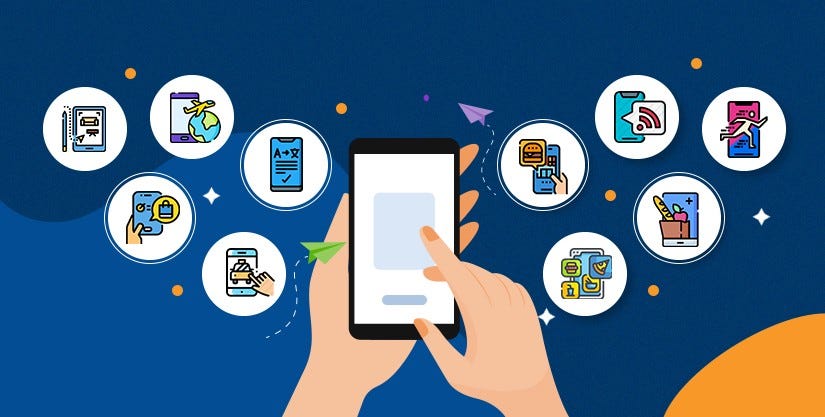
Dubai has quickly emerged as one of the world’s leading technology hubs, fueled by innovation, smart city initiatives, supportive government policies, and a rapidly evolving digital economy. As businesses across the UAE accelerate their digital transformation, mobile app development has become a key driver of growth, efficiency, and customer engagement. With increasing investments in AI, blockchain, cloud computing, and immersive technologies, Dubai is shaping the future of mobile experiences at a global level.
This article explores the most influential trends driving the future of mobile app development in Dubai, highlighting how companies and entrepreneurs can leverage these advancements to stay competitive in a fast-paced digital landscape.
1. Artificial Intelligence (AI) and Machine Learning (ML) at the Core of App Innovation
AI and ML are becoming essential components of mobile apps in Dubai. From intelligent chatbots in e-commerce platforms to predictive analytics in fintech and personalized recommendations in lifestyle apps, AI is transforming user experience.
Key AI-powered developments include:
-
AI chatbots and virtual assistants for 24/7 customer service
-
Smart recommendations for shopping, entertainment, and content apps
-
Predictive analytics for business decision-making
-
Image and voice recognition for security and user convenience
-
Automated processes that reduce human errors
Dubai’s focus on becoming the world’s smartest city ensures that AI remains central to app development across industries.
2. Rise of AR/VR for Enhanced User Experiences
Augmented Reality (AR) and Virtual Reality (VR) are reshaping mobile applications in Dubai, especially in real estate, retail, education, and tourism.
Popular applications include:
-
Property tours for real estate apps
-
Virtual fitting rooms for fashion brands
-
Immersive learning experiences in education apps
-
Interactive museum and tourism guides
Dubai’s ambition to integrate immersive technologies into daily life, coupled with its strong entertainment and retail sectors, ensures that AR/VR will continue to be one of the most impactful trends.
3. Super Apps: The Future of Unified Digital Ecosystems
Dubai’s diverse and fast-growing market is fueling the rise of super apps—platforms that combine multiple services into one unified ecosystem.
Examples of services included in super apps:
-
Payments and banking
-
E-commerce
-
Food delivery
-
Ride-hailing
-
Travel bookings
-
Communication tools
Apps like Careem and DubaiNow already demonstrate how powerful and convenient super apps can be. As consumer expectations grow, more businesses will adopt this model to create all-in-one user experiences.
4. Blockchain Adoption for Security and Transparency
Dubai aims to be the world’s first blockchain-powered city, and the technology is rapidly influencing mobile app development.
Blockchain benefits digital solutions in:
-
Secure financial transactions
-
Digital identity verification
-
Supply chain transparency
-
NFT and digital asset management
-
Healthcare data protection
With increasing government support, blockchain integration is becoming a standard requirement for fintech, logistics, healthcare, and public sector apps.
5. 5G Technology Enhancing App Speed and Performance
The rollout of 5G across the UAE is significantly transforming the mobile app landscape. With ultra-fast internet speeds and lower latency, 5G enables developers to create powerful apps that were previously impossible.
Advancements powered by 5G include:
-
Real-time data synchronization
-
Enhanced AR/VR performance
-
High-quality video streaming
-
Faster mobile gaming
-
Improved cloud connectivity
5G ensures smooth user experiences, especially for apps dealing with large datasets or real-time interactions.
6. Growth of Fintech and Digital Wallet Applications
Dubai’s financial ecosystem is experiencing massive digital disruption. Mobile-first banking, crypto trading, and cashless payments are becoming mainstream.
Popular fintech trends shaping Dubai’s apps include:
-
Digital wallets like Apple Pay, Samsung Pay, and local wallets
-
Buy Now Pay Later (BNPL) apps
-
Investment and trading apps
-
AI-driven personal finance assistants
-
Blockchain-based transactions
As Dubai moves toward a cashless economy, fintech app development will continue to boom.
7. Smart City Solutions Driving the Demand for Intelligent Apps
Dubai’s Smart City initiative aims to integrate advanced technology into transportation, governance, public services, environment, and communication.
This has led to a surge in apps that offer:
-
Smart parking and mobility solutions
-
Digital government services
-
Smart home automation
-
Public service information and bookings
-
Real-time transportation updates
Apps like DubaiNow and RTA Smart Drive illustrate how deeply mobile technology is embedded in daily life.
8. On-Demand Economy Revolutionizing Consumer Behavior
The on-demand app ecosystem continues to grow rapidly across Dubai as users seek convenience and instant services.
Categories experiencing strong demand:
-
Food and grocery delivery
-
Ride-hailing and limousine booking
-
Beauty and wellness home services
-
Laundry and cleaning
-
Healthcare on-demand
-
Logistics and courier apps
The trend shows no signs of slowing down, creating endless opportunities for startups.
9. Cloud-Based Mobile Apps Dominating Business Operations
Cloud computing is transforming how mobile apps are developed and deployed in Dubai. Companies are adopting cloud-native solutions for:
-
Improved scalability
-
Lower operational costs
-
Enhanced data security
-
Seamless cross-platform development
-
Real-time updates
Cloud backends ensure that apps remain fast, secure, and efficient even as user numbers grow.
10. Voice Technology and IoT Integration Becoming Mainstream
Voice-powered and IoT-integrated mobile apps are becoming increasingly popular in Dubai, especially in smart homes, automobiles, and hospitality.
Popular use cases include:
-
Voice-enabled shopping
-
Smart home automation systems
-
Car navigation and control
-
Hotel room automation services
-
Healthcare monitoring devices
Dubai’s futuristic lifestyle and strong IoT infrastructure make voice and device connectivity essential for modern apps.
11. Greater Focus on Cybersecurity and Data Privacy
As mobile usage increases, so do security risks. Developers in Dubai are now prioritizing:
-
End-to-end encryption
-
Biometric authentication
-
Multi-factor login
-
Secure cloud architecture
-
Compliance with UAE privacy laws
Security has become a non-negotiable requirement for any mobile app, especially those involving finance, healthcare, and government interactions.
12. Sustainability and Green Technology Influencing Development
Dubai’s eco-conscious initiatives are encouraging developers to adopt sustainable app development practices such as:
-
Energy-efficient coding
-
Cloud optimization
-
Reducing data usage
-
Apps promoting sustainability awareness
Green app development is becoming an important trend as the city moves toward a sustainable future.
Conclusion
The future of mobile app development in Dubai is shaped by cutting-edge technologies, strong government support, and a rapidly evolving digital-first consumer landscape. Trends such as AI, blockchain, AR/VR, super apps, fintech innovation, and smart city integration are setting new standards for mobile experiences.
For businesses and entrepreneurs, understanding these trends is essential to building mobile apps that stand out in a competitive market. With the right development strategy and technology adoption, Dubai offers limitless opportunities for innovation and growth.






